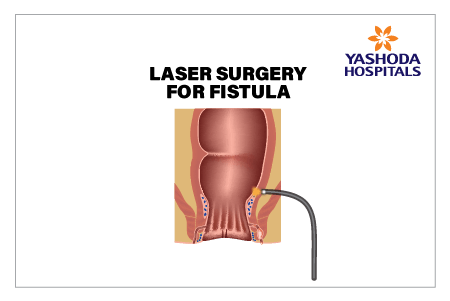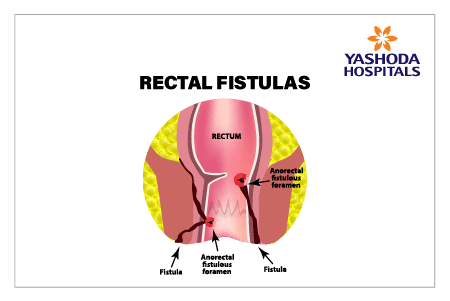Peritonitis: Intestinal fistula may cause inflammation or infection of the peritoneum is commonly seen in fistulas.
How are anal fistulas diagnosed?
The physician will carefully evaluate the medical history & anorectal symptoms and perform a rectal examination under anesthesia. Any draining pus (or blood or stool) and heaped up tissue seen in the external opening is related to the anal fistula. When the fistula is not visible on the skin surface, your physician may order an endoscopic ultrasound or MRI to define the fistula tract. Internal fistulas may be evaluated using barium contrast X-ray, MRI or CT scan.
If the anal fistula is suspected to be caused due to digestive diseases such as Crohn’s disease, the patient may need to undergo certain blood tests, X-ray & colonoscopic examination.
How are anal fistulas treated?
Treating anal fistula can get very complicated. Mostly they are treated using medication for pain but eventually, patients almost always need a surgery to cure an anal fistula. Fistula surgery is done as an outpatient procedure. However, very large and deep fistula tunnels may require a short hospital stay.
Treating fistulas in patients with Crohn’s disease: These patients are at increased risk of fecal incontinence, thus the primary treatment involves medication. Surgery is reserved only to treat infection and as a supplement to medication.
Some of the surgical options available for anal fistulas are:

Fistulotomy: Anal fistula involving minimal sphincter muscle is cured by fistulotomy. It has a success rate of 92 – 97%. The surgeon cuts through the skin and muscles over the tunnel to form a groove that heals inside out.
Seton placement & surgery: Complex fistulas are treated with a special drain, seton for at least 6 weeks followed up with a definitive surgical repair. Seton helps to drain the fistula & resolve inflammation in a controlled manner, with minimal pain and normal bowel function.
Laser surgery for Fistula: Laser energy is transmitted by using radial fiber and fistula epithelium is destructed. The procedure may be performed within half an hour via expert surgeon only. An expert surgeon will be able to diagnose the problem and treat the same with great care.
What is the recovery like from surgery for the anal fistula?
It is important to discuss the post-surgery care and recovery. Some pain and discomfort in the area after surgery is common. Most fistulae respond well to surgeries and for easy recovery doctor may recommend:
- Soaking the affected area in a warm bath
- Painkillers
- Laxatives and stool softeners for a week
- Fiber-rich diet








 Appointment
Appointment WhatsApp
WhatsApp Call
Call More
More